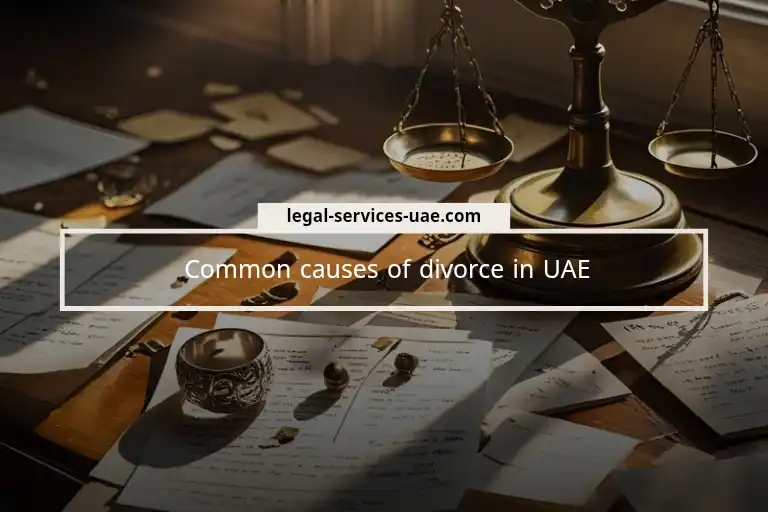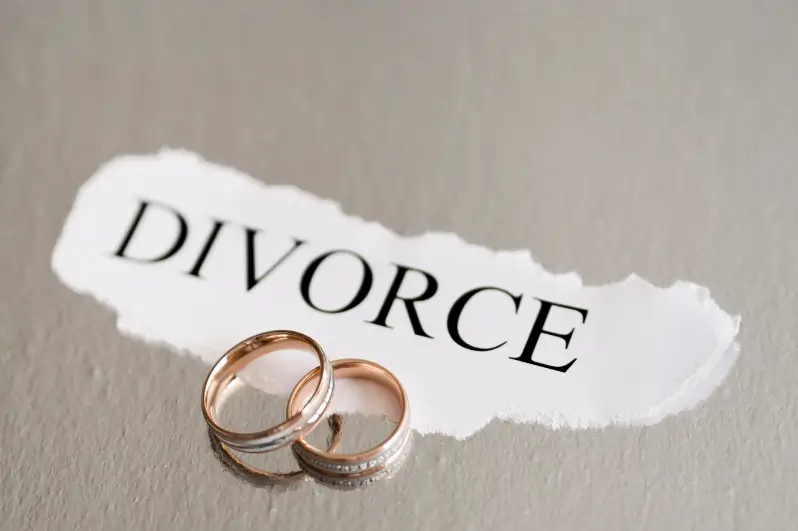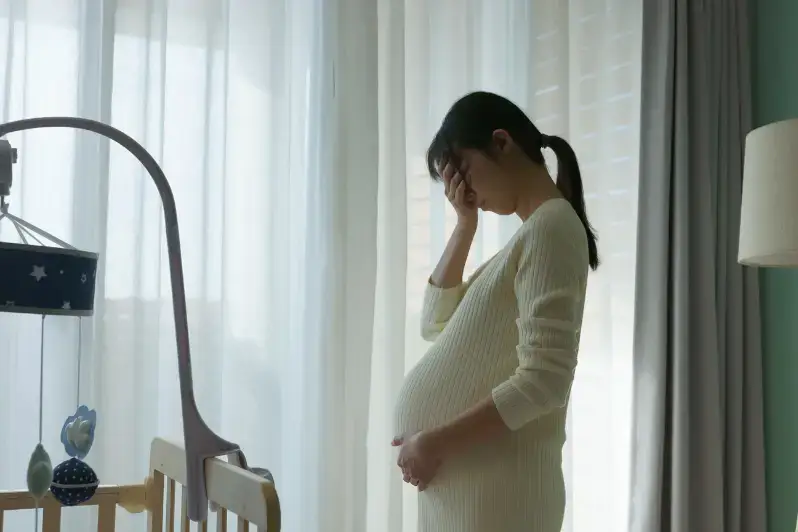In early 2024, a UAE national filed for divorce after just one month of marriage, citing her husband’s refusal to provide financial support and his addiction to painkillers. Cases like this reflect a growing trend and underline the common causes of divorce in UAE, now governed by Federal Decree-Law No. 41 of 2024 on Personal Status. This law modernizes divorce procedures and clarifies legal grounds for marital dissolution.
If you’re facing marital conflict and need legal guidance, click on the WhatsApp button below.
فهرس المقال
Most Common Causes of Divorce in UAE (2024)
Based on judicial data and the new decree-law, the common causes of divorce in UAE include:
1. Harm and Abuse (Article 71)
Physical or emotional harm that makes it unbearable to continue marital life is a clear legal ground for divorce. The court may order separation even if the harm cannot be proven, based on repeated litigation.
2. Addiction to Substances (Article 80)
Drug or alcohol addiction is now a standalone ground for divorce. If one spouse is addicted and unwilling to seek treatment, the other may request annulment.
3. Abandonment and Absence (Article 79)
If one spouse disappears for over 6 months or their location is unknown, the remaining spouse can petition for divorce on the grounds of abandonment.
4. Failure to Provide Maintenance (Article 78)
Lack of financial support for a reasonable period—without justification—entitles the affected spouse to request a judicial separation.
5. Incompatibility and Repeated Disputes (Articles 71–74)
When reconciliation is no longer possible due to ongoing conflict, the court may order divorce. Reconciliation efforts via the Family Reform Center are mandatory before proceedings escalate.
6. Infidelity and Breach of Marital Trust
Although not always provable, infidelity or suspicion of betrayal remains a frequent cause cited in divorce filings and can be part of broader claims under harm or moral damage.
Legal Procedures for Divorce (Under Decree 41/2024)
The law outlines the following procedural framework:
- Referral to Family Guidance (Article 8)
All divorce petitions must first be submitted to the Family Reform and Guidance Center, which attempts reconciliation within 15 days. - Court Filing and Evidence Submission
If reconciliation fails, the court evaluates claims like harm, addiction, or abandonment and issues a ruling. - Issuance of Judgment and Appeals (Articles 9–10)
The initial ruling may be appealed within 30 days of issuance. - For Non-Muslims
Non-Muslim spouses can opt to apply their home country’s law, unless it conflicts with UAE public order.
FAQ
This article outlined the common causes of divorce in UAE, particularly under Federal Decree-Law No. 41 of 2024, including harm, addiction, abandonment, and lack of financial support. The updated legal procedures ensure both spouses have access to fair, expedited remedies.
Need personalized legal support with divorce or family law in the UAE? Contact us now via WhatsApp to consult with a licensed lawyers in Dubai.
Read more about Divorce Due to Impotence in UAE
Was this helpful?
Specialized Legal Content Writer, possessing deep legal knowledge and exceptional ability to demystify legislation and analyze judicial developments. He delivers clear, precise content that helps you understand your legal rights and obligations while empowering you to make informed decisions across diverse legal domains. Working within our expert legal team, he ensures credibility and trustworthiness in every piece of content.





Great overview! It’s eye-opening to see how addiction, lack of support and communication breakdown are now recognized as serious legal grounds in UAE divorces a must-read for couples and families.